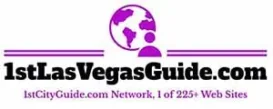Expense Tracking: Best Practices and Risks to Avoid- Las Vegas Edition
2024.6.27
Keeping an eye on your money is important. You don’t want to spend more than you have, right? Therefore tracking your expenses is key in not overspending. In general it’s not too hard to track them, but you need to know some good ways to do it and also what things to watch out for.
How should you prepare?
- Write Expenses Down
You should write down everything you spend money on. You can use anything from a notebook, computer or your phone, choice is yours. There are apps available helping you out with keeping track. Apps can make it easier to see where exactly your money goes.
Getting Ready
- Make a Budget
A budget is basically a plan for your money. You can decide how much to spend on different things like rent, food, and fun stuff. Stick to this plan so you don’t run out of money.
- Review Expenses Regularly
A good timeframe to review your expenses is every week or month. Regular reviewing helps you see if you are sticking to your budget or if you need to change something.
- Separate Needs and Wants
Think about what you need and what you just want. Needs are things you can’t go without, like food and rent. Wants are not required to survive, like new clothes or eating out. Try to spend less on wants so you have more left for needs.
- Keep The Receipts
If you forget to write something down, keeping your receipts becomes useful. You can also check your receipts against your bank statements to make sure everything matches up.
- Save for Big Things
If you want to buy something expensive (a TV or a car) save up for it. Put a little money aside each month until you have enough. This way, you don’t end up in financial troubles.
- Set Fix Goals
Maybe you want to save for a vacation or pay off a loan. Having goals will help you stay focused and motivated to stick to your budget.
- Use Cash Sometimes
When you use a card, it’s easy to spend too much because you don’t see the money leaving your wallet. With cash, you can see how much you have and stop spending when it’s gone. Therefore using cash can help you spend less.
What risks to avoid?
- Falling for Sales
Just because something is on sale doesn’t mean you need it. Sales can be tempting, but they can also lead to overspending. Stick to your budget and only buy what you planned to.
- Overspending
Overspending can lead to debt, which is hard to get out of. Always check your balance before making a big purchase and evaluate if you can afford it. Do not spend more money than you have.
- Forgetting About Small Purchases
A coffee here, a snack there, and soon you’ve spent more than you thought. Do not neglect even the smallest purchases. Write down even all expenses, regardless the size, so you have an accurate overview of your spending.
- Ignoring Your Budget
It is not helpful at all if you make a budget but don’t follow it. Make sure you are checking the budget often and adjust it if needed. If you overspend in one category try to spend less in another in order to balance it out. It is important to stay within your budget.
- Using Credit Cards Wrong
As credit cards can be helpful, they can also be very dangerous. It’s too easy to spend more money than you can pay back on a credit card. If you use a credit card, make sure you can pay it off each month. If you decide to pay just the minimum balance, interest will add up fast and it is a quick way to end up in debt.
- Not Tracking Cash Expenses
Because they don’t show up on your bank statement, it’s very easy to forget about cash expenses. Make sure to write down even the smallest cash expenses, so you don’t lose track of where your money goes.
- Not Saving
In case your car breaks down or you have an unexpected medical bill you will need some extra cash. Saving a little bit each month will prepare you for unexpected expenses.
- Not Adjusting Your Budget
If your rent goes up or you get a raise it will influence your budget. Things in life can change suddenly and therefore be sure to adjust your budget accordingly when changes happen. Aim for a realistic budget.
Tools to Help
- Apps: There are many apps helping you track your spending. Some popular ones are Mint, YNAB, and PocketGuard. These apps can link to your bank account and automatically track your expenses.
- Spreadsheets: If you like doing things yourself, you can use a spreadsheet. Programs like Excel or Google Sheets have templates for budgeting.
- Bank Alerts: Many banks offer alerts notifying you when you spend money or your balance gets low. These can help you keep track of your spending in real-time.
Simple Tips
- Plan for the Unexpected: Always have a little extra money saved for emergencies.
- Avoid Impulse Buys: Think about a purchase for a day or two before you buy it.
- Cut Unnecessary Expenses: Look at your spending and see if there’s anything you can cut out, like subscriptions you don’t use.
1stLasVegasGuide.com

We List Only the Best
1st Las Vegas Guide is not a list of every business. Our website highlights only the best businesses / places / events are featured within these pages. This makes Las Vegas even more magical for residents and visitors alike.

Advertise Your Company
You can be seen by a high quality audience when you place an advertisement on 1st Las Vegas Guide. Not all companies are accepted… Call 702-210-4201 to be have your company seen by affluent buyers. You will be amazed how with the low price.

1st City Guide Expansion
1stCityGuide.com is the parent company of 225+ city guides worldwide. We are expanding and looking for Licensee partners to work together and provide a quality income when sharing the secrets of great cities around the world with visitors and residents alike. Call 702-210-4201 to discuss pricing and city guide availabilities.

